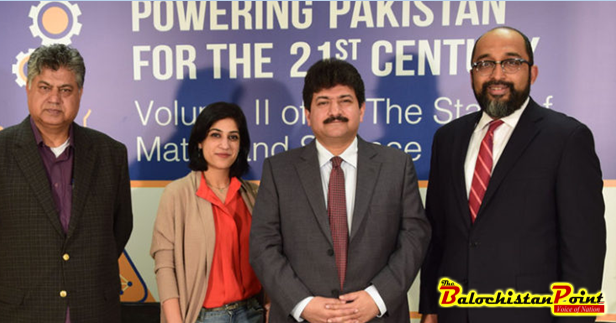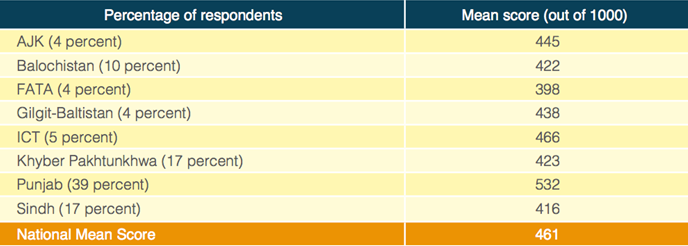Islamabad: Pakistani schools (especially government schools) are producing unacceptably low levels of learning outcomes in maths and science. This represents a significant and deep-rooted challenge to Pakistan’s economic growth. This was revealed in Volume II of State of Maths and Science in schools on Monday.
The report launched by Pakistan Alliance for Math and Science relates:
- The average maths score for Class VIII students in the National Education Assessment System (NEAS) exams conducted in 2014 was 461 out of 1,000.
- The average maths score for Class IV students in the NEAS exams conducted in 2014 was 433 out of 1,000.
- In the Punjab, the 2016 Punjab Examinations Commission (PEC) results show that average maths scores for Class V are 53%.
- In the Punjab, the 2016 Punjab Examinations Commission (PEC) results show that average science scores for Class V are 48%.
- In Sindh, the 2016 Standardised Achievement Test (SAT) results show that average maths scores for Class V are 24%.
- In Sindh, the 2016 Standardised Achievement Test (SAT) results show that average science scores for Class V are 24%.
- Other than the NEAS data, there are no statistics available for middle school learning levels for children in Khyber Pakhtunkhwa, Balochistan, Gilgit Baltistan, Azad Jammu and Kashmir, or the Federally Administered Tribal Areas.
As of today, Pakistan does not provide the children of the least privileged parents a decent maths or science
NEAS 2014 Mean Scores in Maths
NEAS 2014 Mean Scores in Science
There are five fundamental reasons for why maths and science education is so poor.
First, the political economy of maths and science education is aligned to serve the narrow interests of small groups, instead of the interests of Pakistani children.
Second, the government structures responsible for delivery of decent education and the systems in place to deliver them are out-dated, and inefficient. They cannot deliver a 21st century education to the neediest and most vulnerable.
Third, government schools are not equipped to provide satisfactory learning outcomes in maths and science (or in any other subject areas).
Fourth, teachers that teach in those schools do not have the incentives, nor the skills to deliver quality maths and science instruction to children.
Finally, the content being delivered to children, and the means of testing whether they are learning anything are unacceptably low grade, and ineffective.
In recent years, starting with the Punjab, and now extended to all four provinces, teacher recruitment has been de-politicised, and merit-based recruitment is now the standard methodology for teacher hiring. Since 2013, a total of over 125,000 teachers have been hired under strict merit-based recruitment. They now constitute almost 20% of the total number of teachers in the country. This is an important, but small beginning.
In Volume III of the Powering Pakistan for the 21st Century, the Pakistan Alliance for Maths and Science will offer a roadmap, to be developed in consultation with all four provincial governments, as well as civil society and the private sector. PR
Volume II of the report can be downloaded at: http://mathsandscience.pk
Published in The Balochistan Point on February 14, 2017
 Balochistan Point Voice of Nation
Balochistan Point Voice of Nation






